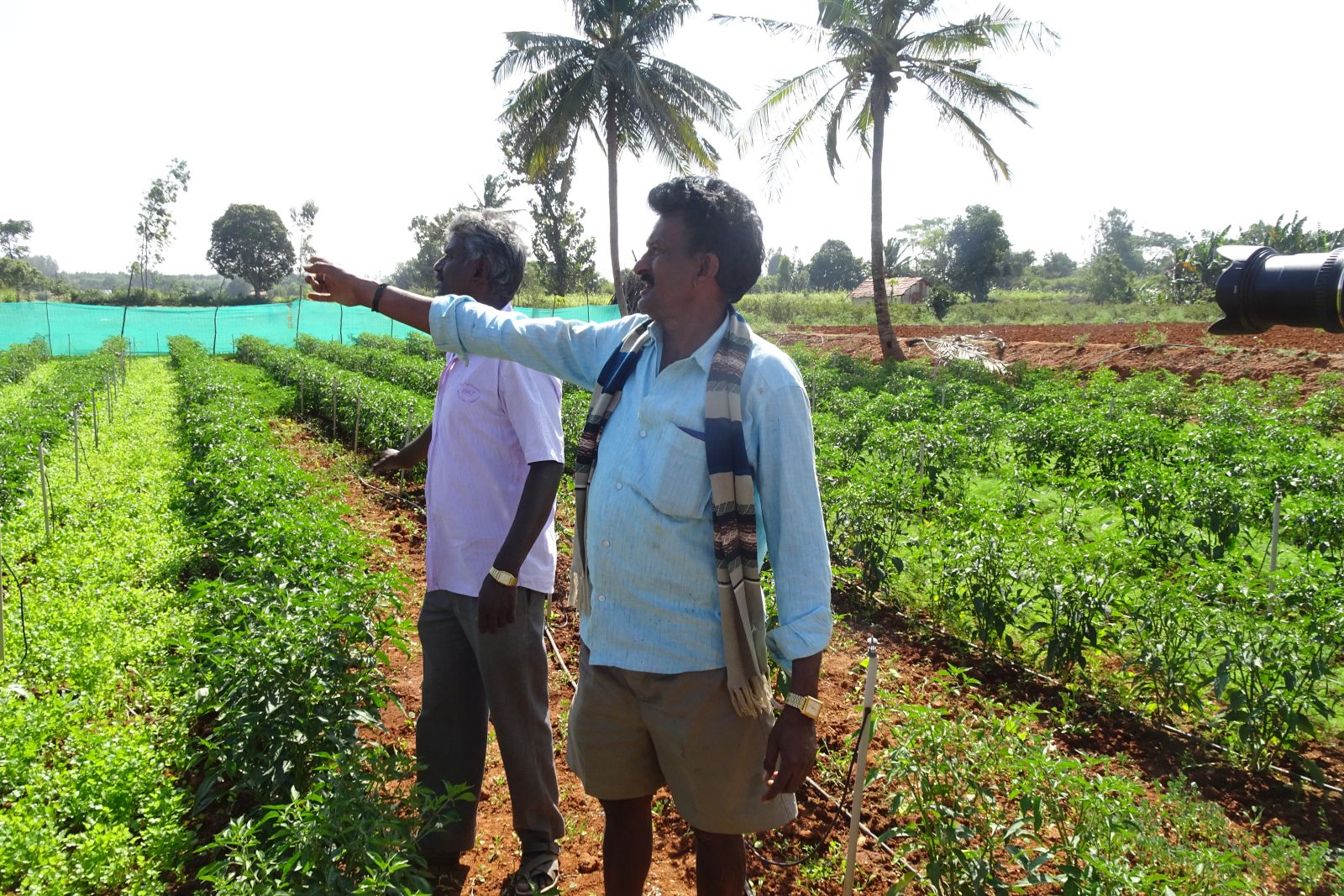Potential of tourism
Sustainable and development-friendly

Tourism is considered a key sector for the attainment of the Sustainable Development Goals (SDGs) that will follow up on the Millennium Development Goals after 2015. Its sustainability and development record, however, is no better (or worse) than that of other industries. Comprehensive sustainability management and systematic assessment of what causes poverty could contribute to making tourism development-friendly.
The positive economic effects of tourism are easily listed: jobs, incomes and foreign exchange. More than 1 billion international tourists contribute nine percent to global GDP annually. Revenues from cross-border tourism total up to more than $ 1 trillion a year. Above-average growth in tourism is found in emerging markets and between them.
No prosperity for all
In order to assess to what extent tourism revenues benefit poor and marginalised population strata, it is necessary to take a closer look at the data. For structural reasons, the food and other goods that tourists consume are not procured locally in many developing countries. The share of imports is high. Accordingly, developing and newly-industrialising countries generate less income per international visitor than developed countries do.
Work in tourism tends to be seasonal and only available in a few, much-visited places. Promotions and career opportunities are typically confined to those who speak a foreign language and have a high level of formal education. While tourism boosts many people’s incomes in absolute terms, it also tends to make socio-economic gaps wider and fosters structural causes of poverty.
Many governments that want to develop tourism try to attract investors by imposing only low taxes and enforcing few environmental and social standards. Many developing countries and emerging markets create special economic and development zones. However, the tax concessions and exemptions governments grant, prevent the generation of state revenues they could use to spread benefits across society, reaching people who do not profit directly from tourism.
Civil-society groups repeatedly document that people are displaced from special economic zones and denied opportunities to get involved in decision-making concerning public affairs, as a recent report from Myanmar shows. In Sri Lanka, human-rights violations are being committed in the context of tourism development, according to the Society for Threatened People (STP), an international non-governmental organisation: because coastal areas have been reserved for tourism, fishermen’s access to the sea has been restricted or even denied entirely.
Environmental damage
Tourism’s environmental footprint also needs to be examined carefully. Whether the industry protects or destroys ecosystems, depends very much on the decisions of investors and policy makers. They determine, for instance, how increasing volumes of waste and effluent are managed and how the growing demand for resources is satisfied.
The climate-changing and environmental impacts of aviation emissions, which are particularly damaging in the high atmosphere, are beyond dispute moreover. Air traffic is growing at a rate of more than five percent a year around the world, with some emerging markets even registering double-digit increases. Some 3.3 billion passengers took an airplane last year.
In all countries, those who fly belong to the middle and upper classes. But the impacts of global warming particularly affect poor people in developing countries, who tend to be more dependent on farming. They cannot compensate for failed harvests or offset rising prices.
Making tourism climate-friendly is therefore a matter of global justice. Short and medium-haul flights, in particular, should be reduced or avoided altogether. What is needed is a revolution in mobility in the rich world – and the promotion of climate-friendly public mass transport there as well as in developing countries and emerging markets.
Sustainability has a particular sociocultural dimension in tourism. In no other economic sector do consumers go to the “places of production” and get a chance to meet the producers of what they purchase. Tourists are in touch with hotel staff, tour guides and other residents of the holiday spots.
If holiday-related goods and services are designed in a way that allows tourists and locals to meet at eye level, tourism can contribute to global understanding, foster communication and boost mutual respect. Otherwise, there is a serious risk of traditional ways of life and cultural practices being destroyed at holiday destinations. What is on offer may not only be questionable but actually harmful.
Consider “voluntourism”, for instance, with clients not only going on vacation but also working as volunteers in welfare facilities for a short time. Children’s homes are a very popular choice, and the volunteers think they are doing something helpful. While one should appreciate their desire to get a glimpse of social reality, one must bear in mind that corruption and child trafficking are flourishing to facilitate these visitors’ demand (see article by Katja Dombrowski on Sex tourism in Cambodia).
People-centred approaches
To make tourism development-friendly, policy makers must allow local communities a say in decisions concerning tourism. Harnessing the industry to reduce poverty involves more than just generating revenues. Policy makers need to redistribute resources in order to benefit the people who live in poverty and ultimately eliminate the causes of deprivation.
Local people must receive assistance and training so they get opportunities of being promoted in tourism-related professions or start a business themselves. It is essential to understand that tourism can only be sustainable if it respects and protects local rights, cultural heritage and natural resources.
Because of the international nature of tourism, the sector is largely unregulated. So far, for example, the international community has been unable to agree on binding emission limits for international travel, which is why air and sea travel are growing with no fiscal restraint.
At the global level, responsibility for policy-making on tourism resides with the UN World Tourism Organisation (UNWTO). UNWTO’s membership includes states and – unusual for a UN agency – affiliates from the private sector. Its focus is the growth of tourism and the elimination of impediments to growth. Its Global Code of Ethics for Tourism provides guidelines for state agencies and private-sector companies, but it does not contain binding requirements – and even less penalty mechanisms.
In international institutions and politics, there is a lot of general talk concerning “sustainable tourism” and “green inclusive growth”. But these phrases are vague; no organisation has yet come up with a definition for “sustainable tourism” that would be acceptable to all.
Development strategies
A comprehensive approach is needed to make tourism more development-friendly. It must work both at local and international levels, and it must get travellers on board as well. At the local level, the focus needs to be on giving local people a say in the development of the sector and protecting their rights, including those of access to land, water and other vital resources.
In nearly every country of the world, local initiatives cater to tourists. They supply tour guides, provide accommodation and offer other services. Often, however, they lack management skills. Moreover, their scope for marketing is limited (see interview with Fuzile Zetu on page 14 f.). They are also disadvantaged in many countries because policy makers do not take their needs into account sufficiently. There is a widespread need for legislation to protect and promote small-scale accommodation-service providers and community-based tourism initiatives. Many of these providers are poorly networked and unable to engage in political lobbying. Networking them and strengthening their human resources should therefore be priorities for developmental interventions in tourism at the grassroots level.
At the international level, the focus needs to be on creating conditions to ensure that the environmental and social costs of tourism are factored in. Otherwise, providers of non-sustainable tourism products will never have to disclose their operations’ true costs, and competition will only be about prices rather than sustainability. Moreover, there must be an end to the subsidisation of air travel, which, according to the German Federal Environment Agency, costs € 10 billion a year in Germany alone. Finally, the tourism sector and its service chain need to pay living wages. Binding rules need to be put in place so companies will identify human-rights related risks, eliminate them and be held to account if they fail to do so.
Antje Monshausen is adviser on tourism and development and heads Tourism Watch at Bread for the World/Protestant Development Service.
tourism-watch@brot-fuer-die-welt.de
http://www.tourism-watch.de
Links:
Myanmar Tourism Sector-Wide Impact Assessment:
http://www.myanmar-responsiblebusiness.org/swia/tourism.html
Society for Threatened Peoples study of Sri Lanka:
http://www.gfbv.ch/tourismus
Environmentally harmful subsidies in Germany:
http://www.umweltbundesamt.de/sites/default/files/medien/378/publikationen/umweltschaedliche_subventionen_2014_0.pdf
From Volunteering to Voluntourism:
http://tourism-watch.de/files/profil18_voluntourism_final_en.pdf
TourismWatch – Informationsservice on Tourism and Development:
http://tourism-watch.de/en/node/1024














